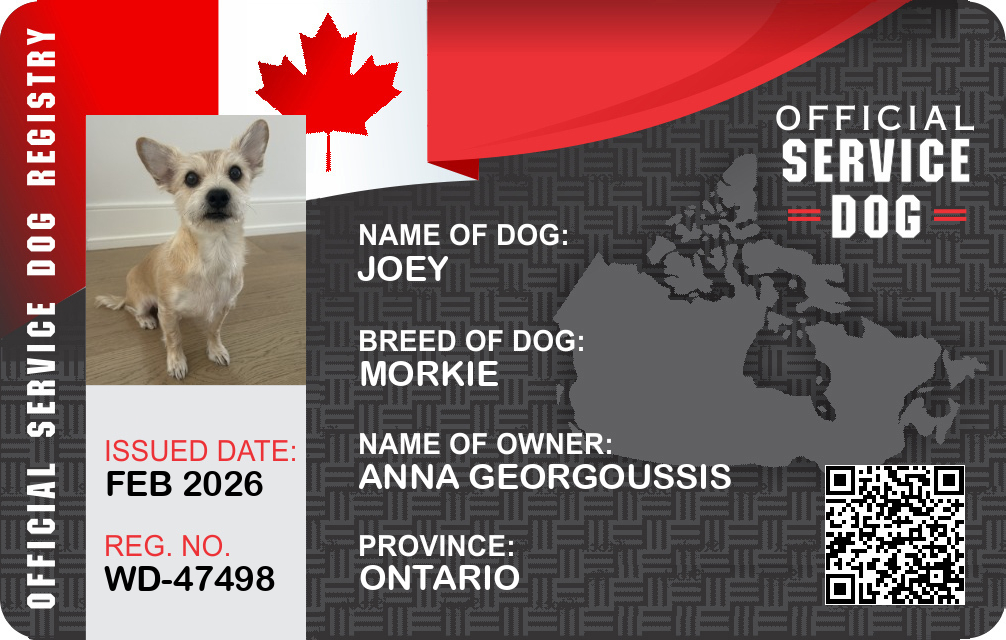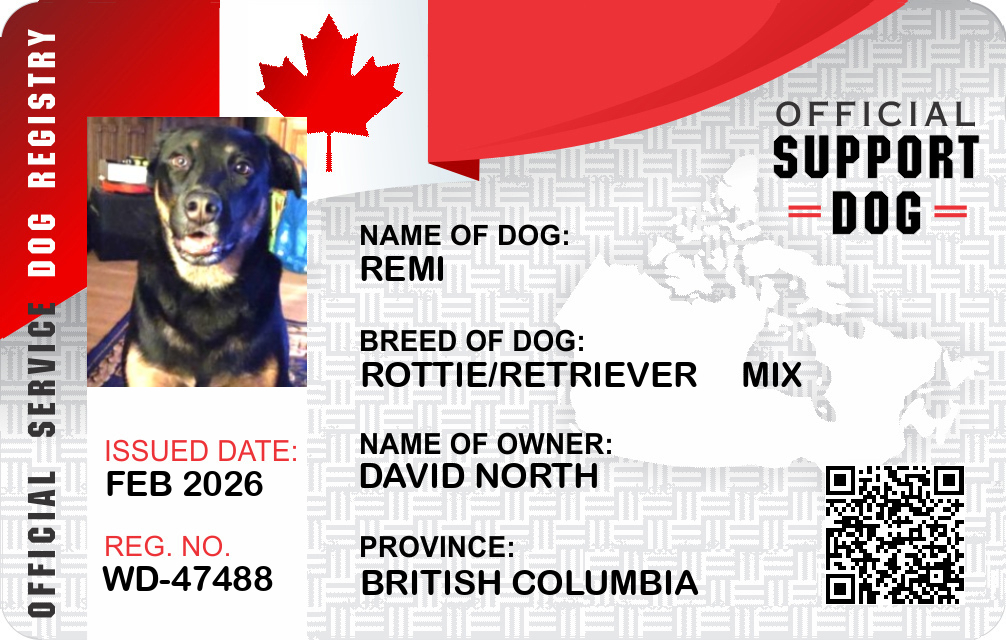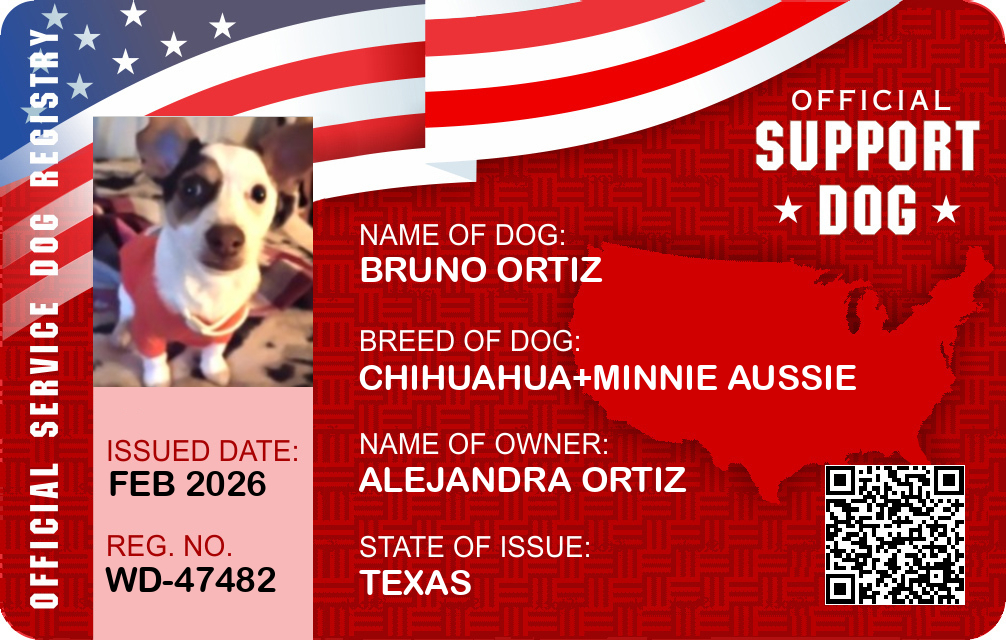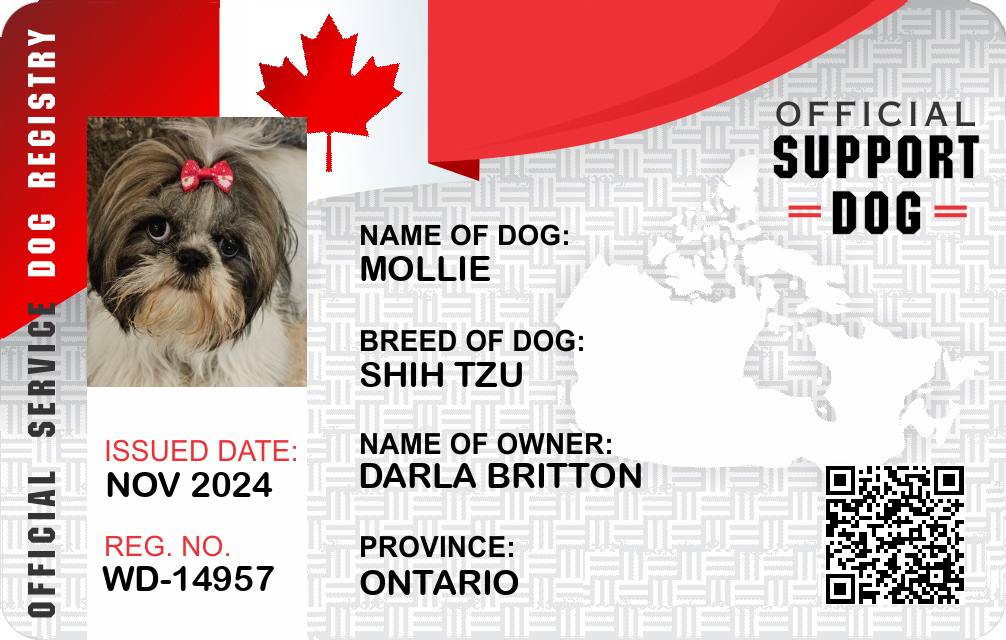Iowa Service Dog Laws
Get Your Documents
Example State Cards

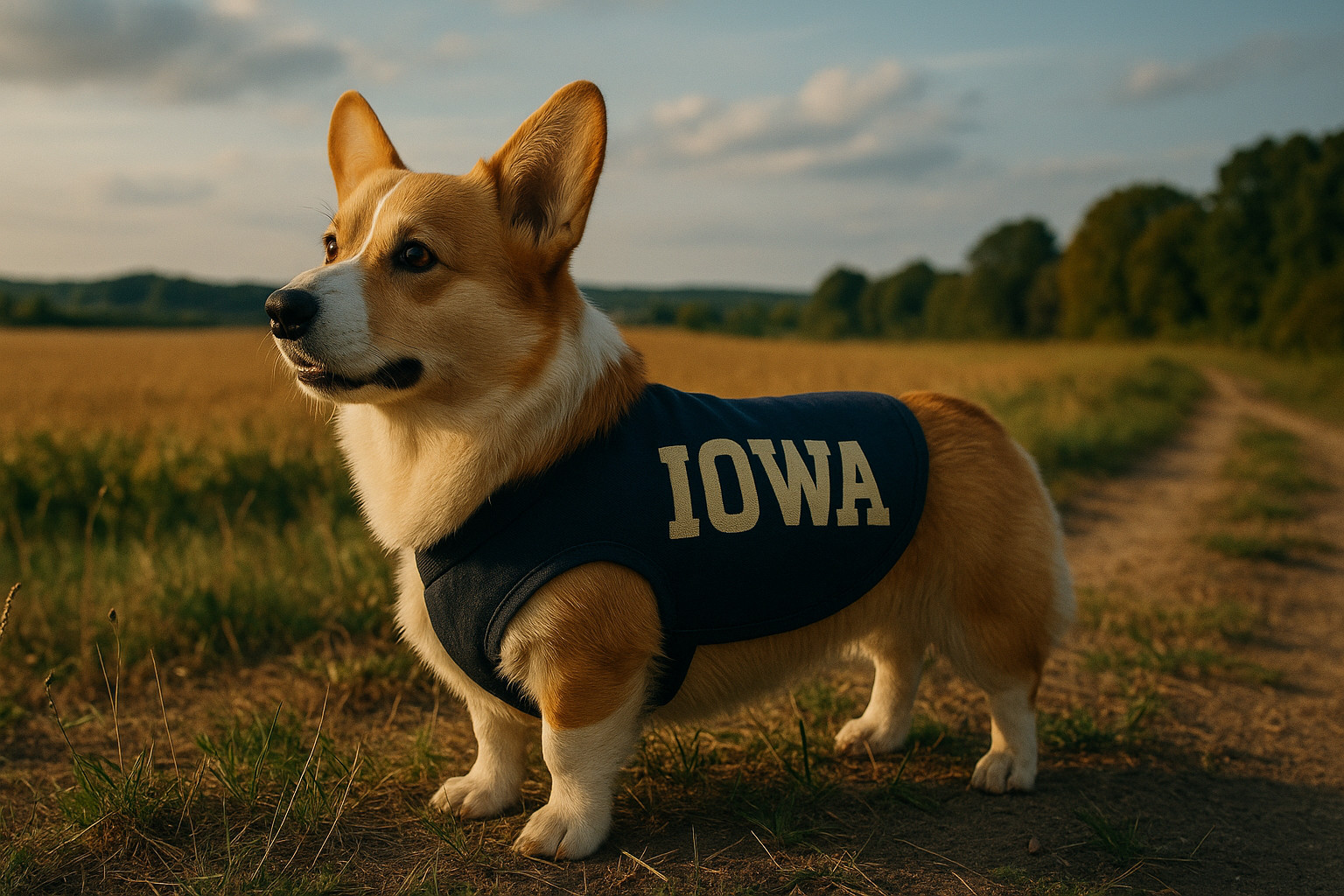
Overview of Service Dog and Legal Definitions in Iowa
What is a Service Dog?
In Iowa, as in the rest of the United States, a service dog is defined according to the Americans with Disabilities Act (ADA). A service dog is a dog that has been individually trained to perform tasks for a person with a disability. These tasks must be directly related to the individual’s disability, such as guiding an individual who is visually impaired, alerting a person who has seizures, reminding a person with mental illness to take prescribed medications, or calming a person with PTSD during an anxiety attack. The role of these dogs is to provide assistance that allows the individual to function with more independence in daily life.
How Service Dogs Differ from Other Types of Assistance Animals
Service dogs differ from other assistance animals, such as emotional support animals (ESA) and therapy animals, in their training and function. Unlike service dogs, ESA and therapy animals do not perform specific tasks to assist individuals with disabilities. Instead, they provide comfort and emotional support. Therapy animals often visit hospitals and nursing homes to provide general comfort to patients and residents. These animals are not granted the same access rights as service dogs under federal or Iowa law.
Key Federal Laws Affecting Service Dogs (e.g., ADA, FHA, ACAA)
Federal laws significantly impact service dog policies, providing a framework within which Iowa laws operate. Key pieces of legislation include:
- ADA (Americans with Disabilities Act): Primarily governs public access rights, ensuring that individuals with disabilities can be accompanied by their service dogs in places open to the public.
- FHA (Fair Housing Act): Protects the rights of individuals to have service animals in housing, prohibiting discrimination in housing-related actions.
- ACAA (Air Carrier Access Act): Governs the rules related to traveling with service animals on airplanes, accommodating them without additional charges.
Each of these laws provides a baseline of rights for service dog handlers, which Iowa state laws complement and elaborate on.
State-Specific Service Dog Laws in Iowa
Housing Rights and Responsibilities
In Iowa, housing rights for people with service dogs are primarily governed by the federal Fair Housing Act (FHA). Property owners and managers must make reasonable accommodations for tenants with disabilities. This means waiving a no-pets policy or pet fees for individuals with service dogs. Landlords cannot require a pet deposit for a service dog, as these animals are not considered pets. They may, however, request documentation asserting the necessity of the service dog, but this is not required for service dogs specifically, unlike emotional support animals.
Public Access and Accommodation
Under Iowa law, individuals with disabilities using service dogs have the right to access public places without facing discrimination. This includes restaurants, hotels, retail stores, and public transportation, among others. Iowa complements the ADA by ensuring that access is extended to all public and commercial facilities. Challenges, such as refusal of service, can result in educational outreach and potentially legal consequences for the establishments.
Transportation and Travel Rules
Iowa law also aligns with the ADA concerning transportation services. Service dogs must be allowed in public transportation vehicles such as buses, trains, and taxis. Such access ensures that individuals with disabilities can maintain their independence in traveling for work, medical appointments, or leisure. Service dogs must behave appropriately and remain under the control of their handler to ensure the safety and comfort of all passengers.
Employment and Workplace Considerations
In Iowa, as per the ADA, employers are required to provide reasonable accommodation for employees with disabilities, which includes allowing service dogs in the workplace. Employers may inquire about the necessity of the service dog but cannot ask for details about the individual’s disability. It is important that the service dog does not cause undue hardship on the business operations and remains well-behaved and unobtrusive while in the workplace.
Documentation, Requirements, and Processes in Iowa
Service Dog Documentation and Who Can Issue It
For service dogs in Iowa, no special certification or public registration is required by law. However, handlers must be prepared to answer two legal questions if needed: whether the dog is required because of a disability and what tasks the dog is trained to perform. Documentation can be helpful in some situations, such as housing and employment, but it cannot be legally demanded.
Landlord, Business, and Provider Verification Rules
Landlords, businesses, and service providers in Iowa, under federal law mandates, cannot demand documentation as a condition for entry or service. They can, however, make two inquiries about the service dog as specified above, as long as the need for the animal is not obvious. As a rule, establishments can ensure service dogs do not pose any direct threat or cause a disruption.
Rights, Limitations, and Legal Risks
Rights Service Dog Handlers Have in Iowa
Service dog handlers in Iowa have a range of rights including:
- Access to public places and transportation without discrimination
- Reasonable accommodation in housing and workplaces
- Protection from charges and fees imposed on pets
- Right to privacy concerning their personal medical information
Limits on Service Dog Protections and Common Restrictions
Despite robust protections, there are limitations, such as:
- Service dogs must be under control at all times, typically through leash, harness, or verbal commands.
- Businesses may deny access if a service dog is not housebroken or poses a direct threat to others.
- Service dogs are not granted access in areas where the presence of animals fundamentally alters the nature of operations, such as sterile hospital environments or operating rooms.
Penalties for Fraud or Misrepresentation
Iowa imposes penalties for the misrepresentation of pets as service dogs. Fraudulent claims can lead to fines as well as criminal charges. This helps protect the rights of genuine service dog handlers by ensuring that the system is not exploited, increasing accessibility and acceptance of legitimate service dogs.
Practical Guidance for Service Dog Handlers in Iowa
How to Qualify for a Service Dog Legitimately
Residents of Iowa with disabilities that substantially limit one or more major life activities can qualify for a service dog. The process involves:
- Consulting with a healthcare provider to substantiate the need for a service dog.
- Engaging a reputable service dog training provider to ensure the animal is trained to perform necessary tasks.
How to Talk to Landlords, Airlines, and Employers
When communicating with landlords, airlines, and employers:
- Be prepared to articulate the necessity of your service dog and the tasks it performs.
- Present any voluntary documentation, such as notes from medical professionals, that supports your need.
- Be firm but polite in asserting your rights, and remain calm in disputes, pointing to relevant laws such as ADA, FHA, or ACAA.
Summary of Service Dog Laws in Iowa
In summary, service dog handlers in Iowa are protected under both federal and state laws that ensure:
- Public Access and Housing: Rights to access public venues and reasonable accommodation in housing.
- Transportation and Workplace: Assurance of accommodation in travel and employment settings.
- Protection from Fraud: Incentives against fraud ensure that true service dogs are recognized and respected.
Handlers must exercise these rights responsibly by ensuring their service dogs are well-trained and behave appropriately in public settings. The system is designed to facilitate the independence of individuals with disabilities while maintaining public safety and trust.
Summary:
- Service dogs defined as per ADA
- Service dog handlers have protected rights in public, housing, and employment
- No specific documentation required, but helpful in certain situations
- Penalties for fraud uphold integrity of service dog use
- Effective communication is key in ensuring rights are respected
Get Your Documents
Example State Cards





